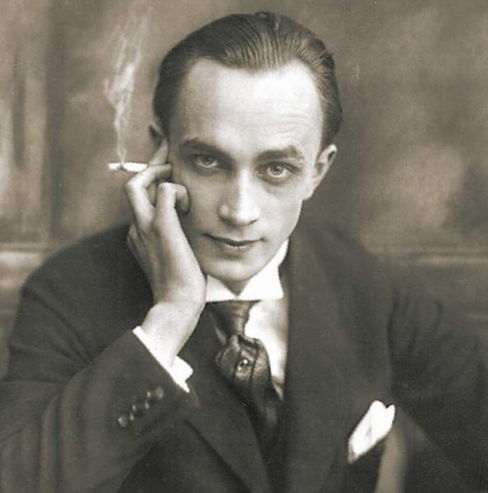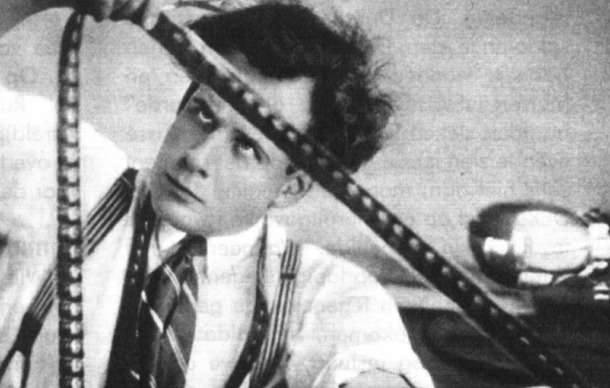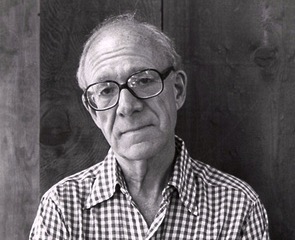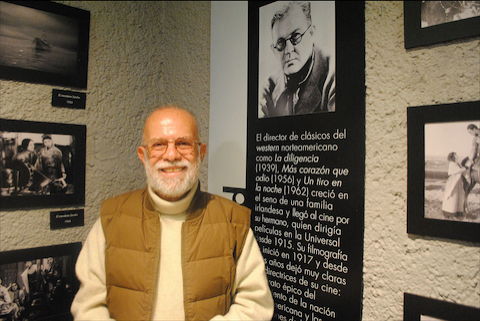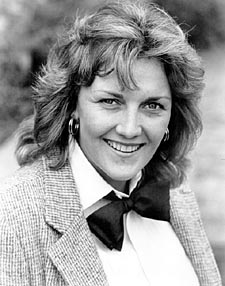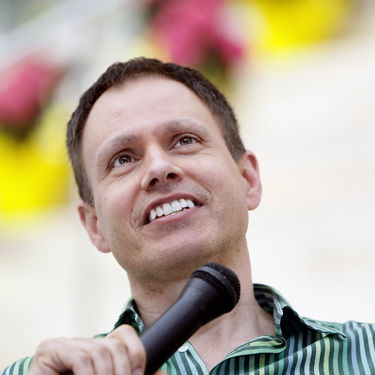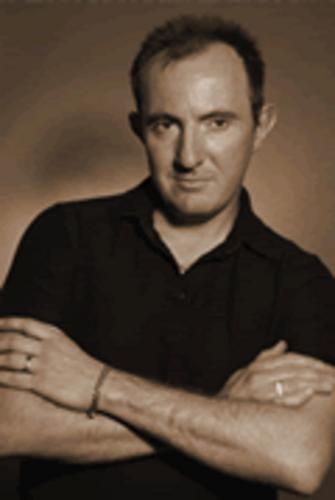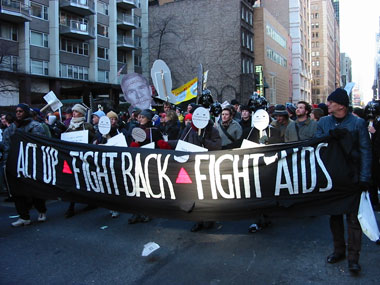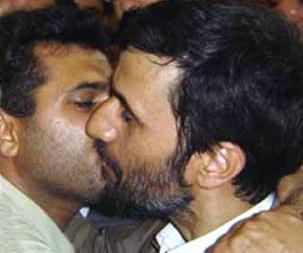|
presents THIS DAY IN GAY HISTORY based on: The White Crane Institute's 'Gay Wisdom', Gay Birthdays, Gay For Today, Famous GLBT, glbt-Gay Encylopedia, Today in Gay History, Wikipedia, and more …
Collected by Ted January 22 [{(o)}]|[{(o)}]|[{(o)}]|[{(o)}]| [{(o)}]|[{(o)}]
1561 – On this date, the English statesmen, essayist and philosopher Sir Francis Bacon was born in London (d.1626). His influence over the James I, who held Bacon in high favor, inspired resentment or apprehension in many of his peers. He is best known for his philosophical works concerning the acquisition of knowledge and the general "scientific method." He was also extremely fond of men. As the British scholar Rictor Norton points out that Bacon did not marry until the late age of forty-eight, and that contemporary figures, such as John Aubrey, related that Bacon was by preference homosexual. Aubrey noted "He was a Pederast. His Ganimeds and Favourites tooke Bribes". He was known for his preference for the "young Welsh serving-men" who were in his employ and who Bacon became a patron to. Rictor points out most a "young Tobie Matthew, who was left only a ring to the value of £30, but who had become Sir Tobie through Bacon's efforts, and who was well able to care for himself." Tobie was the inspiration for one of Bacon's most famous essays, "Of Friendship." Several other authors also believe that despite his marriage Bacon was primarily attracted to the same sex. Professor Forker, for example, has explored the "historically documentable sexual preferences" of both King James and Bacon —and concluded they were both oriented to "masculine love", a contemporary term that "seems to have been used exclusively to refer to the sexual preference of men for members of their own gender." The Jacobean antiquarian, Sir Simonds D'Ewes even implied there had been a question of bringing Bacon to trial for buggery. Indeed, evidence of Bacon's fondness for "red-cheeked lads from Wales" survives in the form of a letter written by Bacon's own mother, in which she complains about the long list of "servants and envoys" who find their way to his bed. She refers to a gay Spanish envoy as "that bloody Perez and bed companion of my son." Bacon was knighted in 1603, and created both the Baron Verulam in 1618, and the Viscount St Alban in 1621; as he died without heirs both peerages became extinct upon his death. He famously died of pneumonia contracted while studying the effects of freezing on the preservation of meat.
1788 – Romantic poet George Gordon, Lord Byron was born in London (d.1824). It's funny how Byron comes down to us as the über-heterosexual romantic, but the evidence of his deep same-sex love is very clear (if still denied by homophobic historians). While he was still a child, Lord Grey, a suitor of his mother's, made sexual advances to Byron. Although Byron was a very self-centered individual, it is probable that like most children, he would have been deeply disturbed by these sexual advances. His extreme reaction to seeing his mother flirting outrageously with Lord Grey after the incident suggests this; he did not tell her of Gray's conduct toward him, he simply refused to speak to him again and ignored his mother's commands to be reconciled.Byron's later proclivity for, and experimentation in, bisexuality may be a result of his being sexually imprinted by both genders at an early age. Leslie Marchand, one of Byron's biographers, controversially theorizes that Lord Grey's advances prompted Byron's later sexual liaisons with young men at Harrow and Cambridge. Another biographer, Fiona MacCarthy, has posited that Byron's true sexual yearnings were for adolescent males. While at Harrow school, Byron formed a circle of emotional involvements with other Harrow boys, which he recalled with great vividness: "My School friendships were with me passions (for I was always violent)." The most enduring of those was with John FitzGibbon, 2nd Earl of Clare — four years Byron's junior — whom he was to meet unexpectedly many years later in Italy (1821). His nostalgic poems about his Harrow friendships, Childish Recollections (1806), express a prescient "consciousness of sexual differences that may in the end make England untenable to him".
"Ah! Sure some stronger impulse vibrates here, Which whispers friendship will be doubly dear To one, who thus for kindred hearts must roam, And seek abroad, the love denied at home." While a student at Trinity College, Byron fell deeply in love with a fifteen year old choirboy by the name of John Edleston. About his 'protégé' Byron wrote, "He has been my almost constant associate since October, 1805, when I entered Trinity College. His voice first attracted my attention, his countenance fixed it, and his manners attached me to him for ever." Many years later, upon learning of his friend's death, Byron wrote, "I have heard of a death the other day that shocked me more than any, of one whom I loved more than any, of one whom I loved more than I ever loved a living thing, and one who, I believe, loved me to the last." In his memory Byron composed "Thyrza," a series of elegies, in which he changed the pronouns from masculine to feminine so as not to offend sensibilities. In later years he described the affair as "a violent, though pure love and passion." This statement, however, needs to be read in the context of hardening public attitudes toward homosexuality in England, and the severe sanctions (including public hanging) against convicted or even suspected offenders. The liaison, on the other hand, may well have been 'pure' out of respect for Edleston's innocence, in contrast to the (probably) more sexually overt relations experienced at Harrow School. From 1809 to 1811, Byron went on the Grand Tour then customary for a young nobleman. The Napoleonic Wars forced him to avoid most of Europe, and he instead turned to the Mediterranean. Correspondence among his circle of Cambridge friends also makes clear that a key motive was the hope of homosexual experience. He was successful in this motive, as evidenced by the subject matter of poems like "Childe Harold's Pilgrimage" and other writings from this period.Ultimately he was to live abroad to escape the censure of British society, where men could be forgiven for sexual misbehavior only up to a point, one which Byron far surpassed.
1893 – German actor Conrad Veidt was born in Berlin (d.1943). He was best known for his roles in "The Cabinet of Dr. Caligari," and "Casablanca." A bisexual himself, Veidt also also holds the distinction of starring in the first motion picture on the subject of homosexuality: 1919's "Anders als die Anderen" (Different from the Others) which was written and produced by German sexologist and early gay-rights champion Magnus Hirschfeld. "Anders als die Anderen" was released in a DVD format a few years back and provides an amazing historical document of the times. Veidt also appears in Christopher Isherwood's "Berlin Stories." 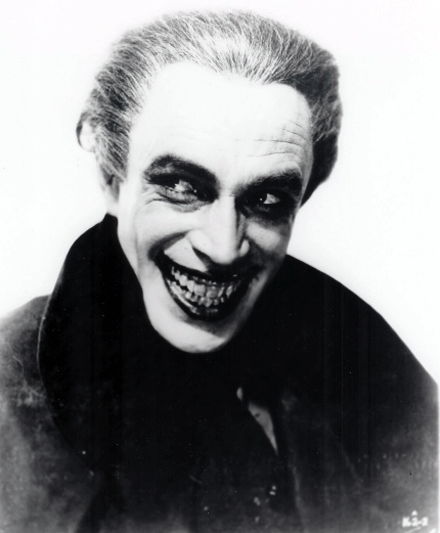 The Man Who Laughs His makeup for his title role in The Man Who Laughs is said to have been the inspiration for Bob Kane's The Joker, Batman's arch-enemy. In late 1916, he was examined by the German Army and deemed unfit for service and given a full discharge in January 1917. Veidt then moved to Berlin to pursue his acting career. From 1916 until his death, he appeared in well over 100 films. In the twenties, he moved to Hollywood and made a few films in the twenties but the advent of talking pictures and his broken English made him return to Germany. Veidt fervently opposed the Nazi regime, motivating him to emigrate from Germany in 1933 a week after marrying Illona Prager, a Jewish woman. He settled in the United Kingdom, perfected his English and became a British citizen in 1938. He continued making films in Britain, notably three with director Michael Powell: The Spy in Black (1939), Contraband (1940) and The Thief of Bagdad (1940). In the 1940s he moved back to Hollywood, California, and starred in a few films, such as Nazi Agent (1942), in which he had a dual role as a Nazi and as the Nazi's twin brother, but his best remembered role was as Major Heinrich Strasser in Casablanca (1942). He found himself invariably playing the very characters he detested. He died suddenly of a heart attack in 1943 while playing golf in Los Angeles. In 1998, his ashes were interred at the Golders Green Crematorium in London.
1898 – Sergei Eisenstein (d.1948) was a revolutionary Soviet film director and film theorist noted in particular for his silent films Strike, Battleship Potemkin and Oktober. His work vastly influenced early film makers owing to his innovative use of and writings about montage. Eisenstein was a pioneer in the use of montage, a specific use of film editing. He believed that editing could be used for more than just expounding a scene or moment, through a 'linkage' of related scenes. Eisenstein felt the 'collision' of shots could be used to manipulate the emotions of the audience and create film metaphors. In his initial films, Eisenstein did not use professional actors. His narratives eschewed individual characters and addressed broad social issues, especially class conflict. He used stock characters, and the roles were filled with untrained people from the appropriate class backgrounds. Eisenstein's vision of Communism brought him into conflict with officials in the ruling regime of Joseph Stalin. Like a great many Bolshevik artists, Eisenstein envisioned the new society as one which would subsidize the artist totally, freeing them from the confines of bosses and budgets, thus leaving them absolutely free to create. Eisenstein's popularity and influence in his own land waxed and waned with the success of his films and the passage of time. The Battleship Potemkin (1925) was acclaimed critically worldwide and popular in the Soviet Union. Acknowledged as his masterpiece, The Battleship Potemkin used editing and the rush of images to attain a greater emotional effect. Shot with the immediacy of a newsreel, this story of the naval revolt in Odessa in 1905 produced some of the most celebrated sequences in twentieth-century art: the Odessa steps scene must be the single most quoted, imitated, and parodied sequence in movie history. The Odessa Steps sequence (7 mins 21 secs) But it was mostly his international critical renown which enabled Eisenstein to direct The General Line (aka Old and New), and then Oktober (aka Ten Days That Shook The World) as part of a grand 10th anniversary celebration of the October Revolution of 1917. The critics of the outside world praised them, but at home, Eisenstein's focus in these films brought him under fire within the Soviet film community forcing him to issue public articles of self-criticism and commitments to reform his cinematic visions to conform to socialist realism's increasingly specific doctrines. Chafing under the constraints of Stalinism, Eisenstein accepted offers to work abroad. Eisenstein returned to the Soviet Union in 1935, where he continued the spiral of falling out of and back into favor with the Stalinist regime. His remaining films - Bezhin Meadow [1937]; Alexander Nevsky [1939]; Ivan the Terrible, Part I [1942]; Ivan the Terrible, Part II: The Boyars' Plot [1946]; and the surviving fragment of Ivan the Terrible, Part III [1947] - were marked with the tensions of the political turmoil in which Eisenstein was embroiled. Eisenstein's personal life was also chaotic. He married twice in response to political pressure, but his marriages were never consummated. His unexpurgated diaries, published as Immortal Memories, are filled with accounts of his infatuations with many young men, including his assistant, Grigori Alexandrov. Often his infatuations (as in the case of Alexandrov) were with young heterosexual men, whom he would educate and assist in their careers. His drawings, exhibited during the centenary of his birth, include many illustrations of homosexual activity. Despite his difficulties with censorship and other problems, Eisenstein created a remarkable legacy. His films reveal his continued commitment to experimentation in form. Alexander Nevsky, his first sound film, contains spectacular scenes, most notably the Battle on the Ice, as well as the incomparably thrilling film score of Sergei Prokofiev. Ivan the Terrible, an intensely Expressionistic study of political power and corruption, with immense sets, voluminous costumes, and amazingly hyperbolic lighting, represents a contrast to this earlier work. It was not dynamically edited, but relied on extended long takes, in which dialogue, sound effects, and music were crucial. Ivan the Terrible pointed to new operatic possibilities in motion pictures. From Strike to Ivan, Eisenstein's career always excited controversy - much of his work was either destroyed or confiscated - but he remains one of the most important filmmakers in history, the exemplar of the true intellectual artist. Eisenstein suffered a hemorrhage and died at the age of 50. An unconfirmed legend in film history states that Russian scientists preserved his brain and it supposedly was much larger than a normal human brain, which the scientists took as a sign of genius.
Ross was born on a homestead near Shellbrook, Saskatchewan. At the age of seven, his parents separated, and he lived with his mother on a number of different farms during his childhood, going to school in Indian Head, Saskatchewan. He left school after Grade 11 and in 1924 the sixteen-year-old Ross joined the Union Bank of Canada which became part of the Royal Bank of Canada a year later. At first he worked in a number of small towns in Saskatchewan then moved to Winnipeg, Manitoba in 1933 and Montreal, Quebec in 1946, after spending four years in the Canadian Army during World War II. He would remain with the Royal Bank until his retirement in 1968, after which he spent some time in Spain and Greece before moving to a nursing home in Vancouver, British Columbia, where he lived until his death. As For Me and My House, set in an isolated town in the Prairies during the Great Depression, was published in 1941. At first not much noticed, it went on to become a Canadian literary classic which set the precedent for the genre of Canadian prairie fiction. He wrote three more novels during his lifetime as well as a few anthologies of short stories, none of which became as well-known as his first novel. He is known to have destroyed manuscripts of novels that his publisher rejected, including a sequel to Sawbones Memorial. In 1992, he was made a Member of the Order of Canada. He died in 1996 after battling Parkinson's Disease, and was buried in Indian Head. At the end of his life, his homosexuality became public knowledge, thanks in large part to Keath Fraser's controversial 1997 biography As For Me and My Body: A Memoir of Sinclair Ross. A monument in his honor, a bronze statue sculpted by Joe Fafard, has been erected in Indian Head by Saskatchewan artists and readers.
1922 – Poet, dramatist, critic and longtime New Yorker poetry editor Howard Moss was born in New York City. Moss was editor at the New Yorker from 1948 until his death in 1987. He won the Pulitzer Prize for Poetry in 1971 and the National Book Award in 1972 for "Selected Poems". His last book of poems, "New Selected Poems" (1986) won the Lenore Marshall-National Prize for Poetry. He is credited with discovering a number of major American poets, including Anne Sexton and Amy Clampitt. ''He was a tremendous force for poetry in this country,'' said Galway Kinnell. Many prominent poets published their early work with Mr. Moss, including Kinnell, James Dickey, Anne Sexton, Theodore Roethke , Richard Wilbur, Sylvia Plath and Mark Strand. Although comparatively open among friends about his sexuality, Moss rarely explored gay content explicitly in his poetry. Rather, he frequently employed the reticent, genderless, second-person singular in his more intimate, subjective verses, as in "And what were you trying to do / When you said, "You said we're through?" from the poem "Circle" (1963), and "Was that you flying down a flight of stairs / Into a thousand snowflakes of goodbye?" in "Three Winter Poems" (1971). Not that Moss's works are necessarily ambiguous or equivocal. He could be tart and transparent when contemplating certain aspects of gay culture, scrutinizing, for example, "last night's hunks of sex" weaving down the street, "still drunk," on their way home, in the poem "Nerves" (1983). Moss could also be trenchant when writing about the difficulties of attaining, and maintaining, love, attachments, and affection. In "The Rules of Sleep" (1982), which critics have identified as a gay love poem, albeit one that is suffused with melancholy, "legs entwine to keep the body warm / Against the winter night," when a "sudden shift in position" lets "one body know the other's free to move / An inch away, and then a thousand miles." The poem ends with the searing, unsparing observation that "even intimacy / Is only another form of separation." W.H. Auden and Chester Kallman co-wrote a famously concise clerihew in Howard's honor: TO THE POETRY EDITOR OF THE NEW YORKER
Is Robert Lowell Better than Noel Coward, Howard?
1942 – Today was the birthday of Mexican director, screenwriter and editor Jaime Humberto Hermosillo (d.2020). Often compared to Spanish director Pedro Almodóvar, Hermosillo's films often explored the hypocrisy of middle-class Mexican values. He was also openly Gay and has explored such themes in his work. His films include Esmeralda Comes by Night, Forbidden Homework , El Misterio de Los Almendros, and the Gay classic Dona Herlinda and Her Son about a young bachelor doctor who has a love affair with a younger music student, Ramon. 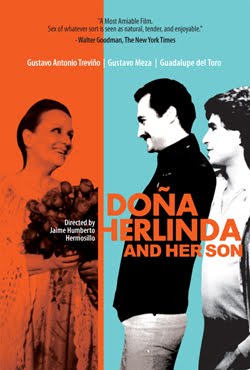 At the time of his death Hermosillo was teaching film-making at the University of Guadalajara and had recently collaborated with his students on several projects. On 13 January 2020, Hermosillo died at the age of 77, 9 days before his 78th birthday.
1944 – A dedicated lesbian activist during the early part of the gay liberation movement, Elaine Noble chose electoral politics as her avenue for change and made history as the first openly gay candidate ever elected to a state-level office. Coming out during her 1974 campaign for a seat in the Massachusetts House of Representatives took courage, and so did trying to fulfill the expectations of a long under-represented gay community. Though she was often overwhelmed, both by the homophobia she faced and by criticism from her own community, Noble used her position to work for gay civil rights and other progressive causes. From the start, she was an out lesbian, working to organize in her own community, from planning Boston's earliest pride marches to protesting at the city's prestigious Locke-Ober restaurant to end its prohibition against women eating in the bar. n 1974, Noble ran for a seat in the state House of Representatives, for the Fenway and Back Bay neighborhood district of Boston. She won with 59 percent of the vote, and was catapulted into history as the first openly gay person elected to office at the state level. (During the early 1970s, Nancy Wechsler had come out as a lesbian while serving on the Ann Arbor, Michigan city council; and in 1974, Kathy Kozachenko, an out lesbian, was elected to fill Wechsler's seat on council.) Noble's election, and her successful re-election bid in 1976, were important hallmarks for the gay community, paving the way for the hundreds of openly gay candidates who appear on ballots throughout the United States each year. Her public position placed Noble in the line of fire for both threats from bigots and complaints from her gay constituency. Her house was vandalized and she was threatened with a gun because of her support for legislation forcing the integration of Boston schools. At the same time, she felt burdened and frustrated by the demands of gay men and lesbians who seemed to expect that she speak for all of them. In an interview with Sasha Gregory-Lewis, in Mark Thompson's Long Road to Freedom (1994), she said, "The gay community expected me to be on call 24 hours a day. It was like they felt they owned me." In the 1970s, Noble was involved in a highly publicized affair with writer Rita Mae Brown, but she has since zealously guarded her privacy. Noble has now largely retired from public life and lives in Florida.
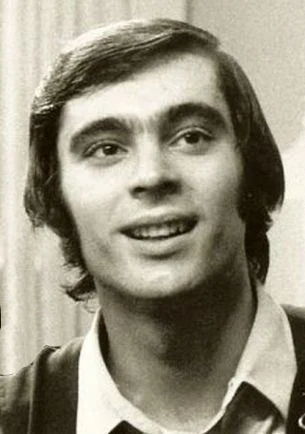
1951 – Ondrej Nepela, born in Bratislava, Slovakia, (d.1989) was a Slovak figure skater who competed for Czechoslovakia in the late 1960s and early 1970s. Nepela began skating at age 7. He was coached by Hilda Múdra. His first major international competition, at age 13, was the 1964 Winter Olympics; he finished 22nd. He went on to win five European Figure Skating Championships five times between 1969 to 1973; the World Figure Skating Championships in 1971, 1972, and 1973; and the 1972 Winter Olympics. Nepela wanted to retire from competition after the 1972 season, but agreed to continue one more year because the 1973 World Figure Skating Championships were to be held in his home town of Bratislava. In his second autobiography, Toller Cranston details a sexual tryst between himself and Nepela at 1973 World Championships. Cranston was distracted and affected by their sexual affair and placed 5th while Nepela won the event and even earned a 6.0 during his free skate. Following his amateur skating career, Nepela toured for 13 years as a soloist with Holiday on Ice. He then established himself as a coach in Germany. He coached Claudia Leistner to her European title in 1989. Nepela died of AIDS-related complications in 1989, at the age of 38. Since 1993, the Slovak Figure Skating Association has held a competition each fall called the Ondrej Nepela Memorial. In December 2000, the Slovak Republic named him Slovakian athlete of the century. His former coach, Mudra, received the award on his behalf.
Delwin Vriend, born in Sioux Center, Iowa in 1966 to a Canadian father and American mother, moved to Edmonton, Alberta, with his parents at the age of two. His parents were members of the local Christian Reformed Church and he attended private Christian elementary and secondary schools before enrolling at The King's College in Edmonton and then transferring to Calvin College in Grand Rapids, Michigan, to earn his physics and mathematics degree. After briefly being employed as an electrician, Vriend was asked to work at The Kings College as a laboratory coordinator and chemistry lab instructor. He worked in that capacity for three years. In 1991, Vriend, who was open within his congregation about being in a same-sex relationship, was fired because his sexual orientation was deemed incompatible with a newly created statement of religious belief adopted by The Kings College. Vriend attempted to file a discrimination complaint with the Alberta Human Rights Commission, but was refused on the grounds that sexual orientation was not protected under the province's human rights code. He subsequently sued the Government of Alberta and its Human Rights Commission. In 1994, an Alberta court ruled that sexual orientation must be treated as a protected class under human rights legislation. The provincial government subsequently appealed and in 1996 the decision was overruled by the Alberta Court of Appeal. This decision was then appealed to the Supreme Court of Canada in the case of Vriend v. Alberta, who finally ruled in 1998 that provincial governments could not exclude protection of individuals from human rights legislation on the basis of sexual orientation. Canadian human rights legislation does exempt religious institutions in specific cases typically involving the education of minors, and the Supreme Court ruling did not change that. The Supreme Court decision in Vriend vs. Alberta was used to argue provincial cases against bans on same-sex marriage throughout Canada. In addition, the decision has had greater ramifications within Canadian law outside of sexual orientation issues. It has shaped legal precedent concerning provincial and federal government relationships as well as labor and other civil rights and constitutional laws. Delwin Vriend left the church, according to him, due to the actions of The Kings College and the Christian Reformed Church, finding part-time employment with the AIDS Network of Edmonton Society and eventually a full-time position with the University of Alberta library. However, the publicity surrounding the case caused Vriend to leave Canada in 2000.
1969 – Gary Frisch (d.2007) was co-founder of the Gaydar website. He was one of the UK's leading gay businessmen. Frisch was born in South Africa. He was educated at Boksburg High School and studied computer science at the University of the Witwatersrand in Johannesburg while working for De Beers' industrial diamond division. After graduation, he set up a computer software company, Frisoft Software, which he sold to Q Data (now named Business Connection) in 1994. He was a technical director with Q Data until he left South Africa in 1997. He moved to the UK in 1997 with his boyfriend, Henry Badenhorst, to set up QSoft Consulting, an information technology consultancy firm. After a friend complained that he was too busy to look for a new boyfriend, they launched the Gaydar internet dating website in November 1999 from their home in Twickenham. The website rapidly became very popular. There had been gay dating sites before, but they were slow and laborious. Gary developed two features which speeded things up: Who's Online told participants who was actually there, and Instant Messaging made immediate contact and chat possible. After its first year, Gaydar had 78,000 registered members. By 2007, Gaydar had more than 3.5 million users in 23 countries. In the UK, it accounts for more than 72 per cent of gay and lesbian traffic on the internet, with more than 1 million members. The Gaydar brand expanded into other areas: Frisch was chairman of GaydarRadio, a digital radio station founded in 2002. After Gaydar came the digital radio station GaydarRadio and GaydarGirls. Gary and Henry then bought one of their main rivals, Rainbow Network, held GaydarDays at Alton Towers and sponsored pride events, such as the Sydney Mardi Gras. So successful has Gaydar been that it has been blamed for a downturn in the numbers of men visiting gay bars, clubs and cruising grounds. Some have also blamed it for a rise in unsafe sex. But its reach is so great that the Terrence Higgins Trust now hosts a chatroom, offering sexual health advice, and many police community safety officers have profiles enabling gay men to report homophobic crimes. Badenhorst and Frisch's personal partnership broke up in 2006, although they remained business partners. In 2007, Gary Frisch was found dead below the window of his eighth-floor flat in Wandsworth, South London. A verdict of misadventure was recorded by Dr Paul Knapman, the coroner at the inquest. A pathologist, Dr Peter Wilkins, said raised levels of ketamine were found in Mr Frisch's blood and liver.
1978 – New York City Mayor Ed Koch issues Executive Order 50 which forbids discrimination against gay men and lesbians in municipal government.
1991 – During Operation Desert Storm, ACT UP activist John Weir and two other activists entered the studio of the CBS Evening News at the beginning of the broadcast. They shouted "Fight AIDS, not Arabs!" and Weir upstaged anchorman Dan Rather before the control room cut to a commercial break. The same night ACT UP demonstrated at the studios of the MacNeil/Lehrer Newshour. The next day activists displayed banners in Grand Central Station that said "Money for AIDS, not for war" and "One AIDS death every 8 minutes." The banners were attached to bundles of balloons that lifted them up to the ceiling of the station's enormous main room. These actions were part of a coordinated protest called "Day of Desperation."
2003 – American journalist, editor and co-founder of OUT Magazine Sarah Pettit died of lymphoma. She was born in Amsterdam, the Netherlands, and raised in Paris, London and Bad Homburg (Germany). In 1988 she graduated from Yale University. In 1999 she became arts and entertainment editor for Newsweek Magazine and went on to found OUT Magazine.
2009 – On this date a sociologist at an Iranian university presented a study showing high levels of homosexual experiences among the country's population. Iran has strict laws against sex outside marriage and other sexual acts such as masturbation. Adultery and same-sex acts are punishable by death. Startling new research from sociologist Parvaneh Abdul Maleki found that 24% of Iranian women and 16% of Iranian men have had at least one homosexual experience. 73% of men and 26% of women surveyed said they had masturbated. Ms. Maleki presented her findings at the Third Conference on Well-being in the Family and the story was reported in the Iranian press, albeit as a report on sexual deviance in need of treatment. The report also revealed that more than 75% of those who grew up in a conservative religious environment have watched pornography, 86% have had a heterosexual relationship outside of marriage and just over 4% have had Gay or Lesbian relationships. Since Iran's Islamic revolution in 1979, human rights groups claim that between 3,000 and 4,000 people have been
executed under Sharia law for the crime of homosexuality. During a visit to the US in 2007 he said in reply to a question posed about homosexuality during his speech at New York's Columbia University: "In Iran we don't have homosexuals like in your country... In Iran we do not have this phenomenon, I don't know who has told you that we have it." In his TV interview in September he condemned American acceptance of Gay people. "It should be of no pride to American society to say they defend something like this," President Ahmadinejad said. "Just because some people want to get votes, they are willing to overlook every morality."
[{(o)}]|[{(o)}]|[{(o)}]|[{(o)}]| [{(o)}]|[{(o)}] |


